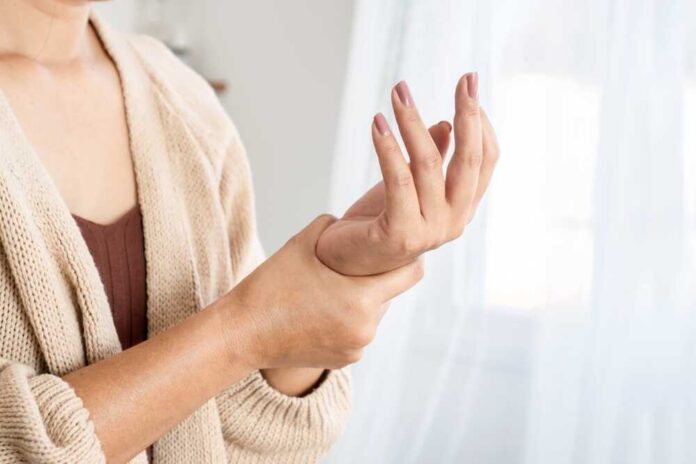
Our ability to move freely and comfortably is something we often take for granted. Mobility and flexibility are crucial components of our daily lives, affecting everything from our ability to perform simple tasks to our overall well-being.
When joint stiffness starts to interfere with our daily activities, it can become a source of frustration and concern.
Understanding the factors that contribute to joint stiffness and exploring potential solutions is essential for maintaining a high quality of life.
Common Causes of Joint Stiffness
Joint stiffness can result from various factors, including:
- Osteoarthritis: This most common form of arthritis occurs when the protective cartilage that cushions your bones wears down over time, causing joint stiffness and pain.
- Rheumatoid arthritis: An autoimmune disorder that occurs when the immune system mistakenly attacks your own body’s tissues, leading to inflammation, joint stiffness, and pain.
- Lupus: Another autoimmune disease that can cause joint stiffness, along with fatigue, skin rashes, and kidney problems.
- Gout: Caused by a buildup of uric acid crystals in your joints, gout is a type of arthritis that can lead to sudden, severe joint pain and stiffness.
- Injury or overuse: Injuries, such as sprains or strains, or overuse of a joint from repetitive movements can cause joint stiffness.
- Age: As we age, our joints may naturally become less flexible due to wear and tear.
Lifestyle Changes for Improved Joint Health
There are several lifestyle changes that can help improve joint health and alleviate stiffness:
- Stay active: Regular physical activity can help maintain joint flexibility and muscle strength, which supports your joints.
- Stretch regularly: Incorporating stretching exercises into your daily routine can help improve flexibility and reduce joint stiffness.
- Maintain a healthy weight: Excess weight can put additional strain on your joints, exacerbating stiffness and discomfort. Maintaining a healthy weight can help alleviate this pressure.
- Follow a balanced diet: Consuming a diet rich in anti-inflammatory foods, such as fruits, vegetables, whole grains, and lean proteins, can help reduce inflammation and improve joint health.
Medical Treatments and Therapies
In some cases, medical intervention may be necessary to manage joint stiffness:
- Medications: Over-the-counter pain relievers, such as ibuprofen, can help reduce pain and inflammation. For more severe cases, your doctor may prescribe stronger medications, such as corticosteroids or anti-rheumatic drugs.
- Physical therapy: A physical therapist can design an individualized exercise program to help improve joint flexibility, strength, and function.
- Joint injections: Injections of corticosteroids or hyaluronic acid into the affected joint can provide temporary relief from pain and stiffness.
- Surgery: In severe cases, joint replacement surgery may be necessary to alleviate pain and restore joint function.
When to See a Doctor
While some joint stiffness can often be managed with lifestyle changes and self-care, sometimes professional medical advice is needed. Consult your healthcare provider if you experience:
- Persistent or worsening pain: If your joint pain and stiffness persist or worsen despite self-care measures, seek medical attention to identify any underlying issues and receive appropriate treatment.
- Severe swelling or redness: Unusual, unexplained, or severe swelling, redness, or warmth around the joint can indicate inflammation or infection, which may require prompt medical attention.
- Decreased range of motion: If you notice a significant decrease in your range of motion, or if your joint stiffness is interfering with your daily activities, consult a healthcare professional.
- Fever: A fever accompanied by joint stiffness and pain can be a sign of an infection or an inflammatory condition.
- Sudden onset of symptoms: If your joint stiffness comes on suddenly, without any apparent cause, consult your healthcare provider to rule out any potential health concerns.
- Previous history of joint problems: If you have a history of joint issues, such as arthritis or previous injuries, discuss any new or worsening symptoms with your healthcare provider to ensure you’re receiving the appropriate care and management.
Your doctor can assess your condition, determine the underlying cause, and recommend appropriate treatment options to help manage your joint stiffness and improve your quality of life.






















